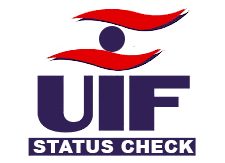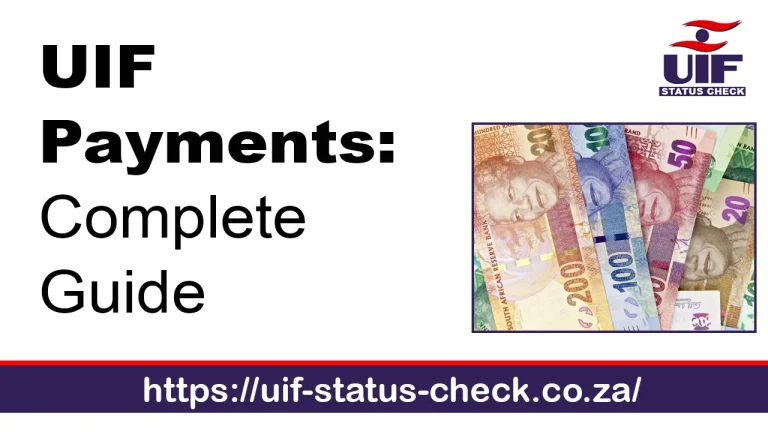Are UIF payments Taxable? What you need to know

In South Africa, it is crucial to understand whether Unemployment Insurance Fund payments are taxable or not. Let’s dive into the details of how these payments interact with your tax obligations in a simple and clear way.
The Unemployment Insurance Fund system is designed to provide short-term financial relief to people who are temporarily unable to work or unemployed. In South Africa, UIF is managed by the department of employment and labor.
The department is responsible to collect and distribute the funds across the country to unemployed workers, this then alleviates the economic stability of the country. It also provides several benefits for individuals that includes:
Illness Benefits:
For employees who have a long term disease and are unable to work for more than 14 days then they can apply for uif claim benefits.
Unemployment Benefits:
For individuals whose contract ends with their employer and can no longer have a source of income through no fault of theirs.
Adoption Benefits:
For employees who take a leave because they adopted a child under the age of two. Only one of the adopting parents can make the claim
Maternity Benefits:
For women taken maternity leave or have had a miscarriage, are eligible to apply for the claim. They can take maternity leave anytime from four weeks before the birth of the child.
Dependent Benefits:
This benefit is for the dependent on someone who has contributed to UIF and has passed away then they can certainly claim UIF.
What are UIF payments and Are they Taxable?
UIF payments
After the UIF application is approved, the benefit funds are provided by the department of labor to the applicants known as UIF payments. The UIF payments or benefits support individuals in case of unemployment due to sickness, adoption or maternity.
Contribution
Both the employer and employee has to contribute to the UIF. The standard rate on which the contribution is done is 2%. The 2% is split evenly between both which is 1% each. For example, if you earn R30000 a month then R300 will be deducted from this salary and will go to the UIF account, similarly R300 will be contributed by the employer to the UIF. These contributions are necessary for all employees except for certain individuals, they might be exempted from it such as:
- Public Servants
- Commission Based Employees
- Employees who work less than 24 hours in a month
Are UIF payments Taxable?
In South Africa, UIF payments are not taxable. It is indeed good news for many people in South Africa that the benefits received from the UIF are not considered to be a taxable amount. The same rule applies for all the UIF benefits payment as well which includes Adoption, Dependent, illness, Maternity and unemployment benefits.
As we mentioned that UIF is a short term program built to assist people who are unemployed due to specific reasons. The uif payments are a way to help the people in South Africa and for that reason the tax does not apply on this amount. The government has chosen not to tax it because it is not a basic salary but instead financial assistance for daily life expenses of UIF claimants.
Moreover, uif benefit claimants do not need to include their uif payments in their annual tax returns as it is not taxable income. When individuals file for a tax return, they only need to report income such as business earnings, salaries and investment income. However, as we know that uif payments are not taxable, you do not need to worry about reporting it in your annual tax returns.
Important Considerations
While UIF payments are not taxable, there are other factors and financial aspects that might affect your tax situation such as:
More than one source of income:
If you are having any other sources of income such as part time work while receiving UIF benefits then you have to report it on your annual tax returns and pay the taxes that are applicable on you.
Receiving more benefits:
There is a chance that some people may be receiving other grants in addition to UIF, such as disability grants or child support grants. Although these grants are also generally non taxable, to be on the safe side you must check the specific rules for each benefit you apply for to understand the tax regulations.
Tax System in South Africa
As we have mentioned above that UIF payments are not taxable, however, it is essential for every individual to understand the tax system in South Africa. The department responsible for collecting tax in South Africa is known as The South African Revenue Service (SARS).
It is a must for every individual in South Africa to register with SARS. You can register with the SARS online or by visiting the SARS branch.
Read also: Recent Changes to UIF benefits 2024
Types of taxes in South Africa
Reducing the amount of Tax owed
It is possible for the tax payers in South Africa to reduce the amount of tax owed through various rebates and deductions. These deductions may include:
Note: Every individual must understand that in South Africa if you do not comply with the tax rules, certain penalties and interest may apply. Failure to comply also includes not registering for taxes or underpayment of the taxes owed. It is important to comply with the tax rules in South Africa to be on the safe side and avoid penalties.
Read also: Common UIF Application Challenges
Impact of UIF and Tax on your salary
It is essential to understand the impact of tax deductions and UIF on your salaries. Here is a breakdown of how UIF and tax affect your salary:
FAQs
Conclusion
To conclude, UIF provides financial assistance to individuals who have lost their jobs. The benefits given to them are non taxable which allows them to plan their finances without worrying about the tax reduction in South Africa.
Moreover, having an understanding of the tax system in South Africa can enable you to manage your finances better and also ensures that you remain compliant with the tax laws and regulations. Remember to stay updated regarding tax news and UIF regulations to always stay ahead and plan your finances hassle free.






